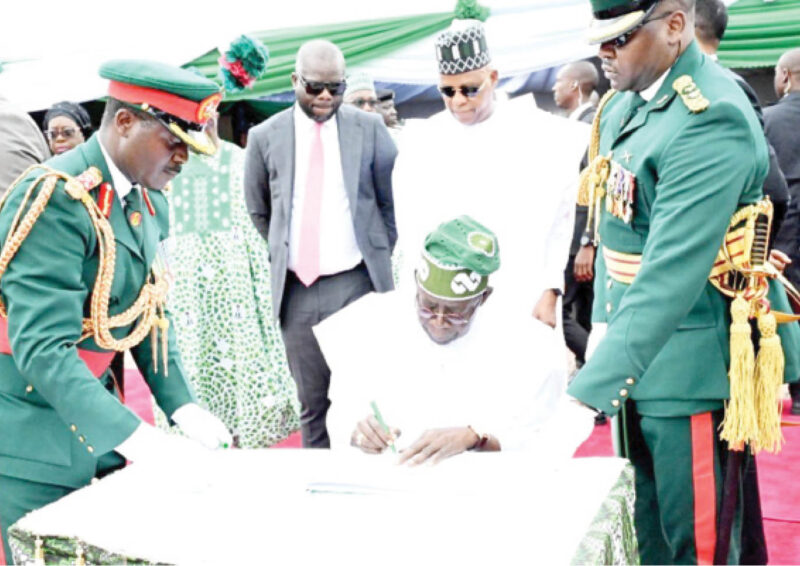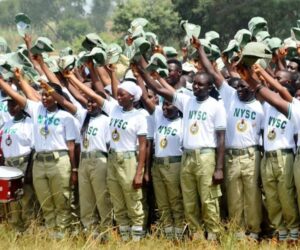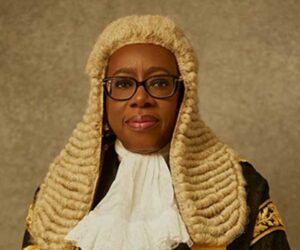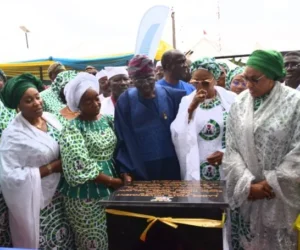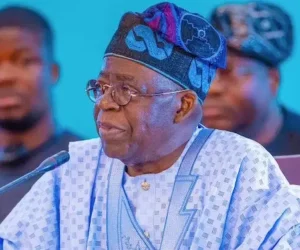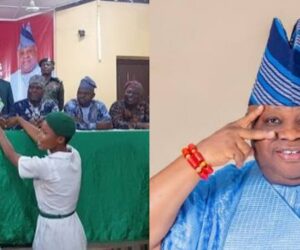On this day 65 years ago, the flag of the United Kingdom, Union Jack, was lowered for the Nigerian flag to be hoisted for the first time in what signified a departure from decades of colonial rule.
It was a historic event that ushered Nigeria into the comity of nations that had won the struggle for self-rule and through the anti-colonial struggles that dominated the politics of the developing countries of that era.
With Princess Alexandra representing Queen Elizabeth II of England, Nigeria’s Prime Minister, Sir Abubakar Tafawa Balewa, received the constitutional instruments of independence in an occasion attended by world leaders and important dignitaries from within the country.
SPONSOR AD
By that, Nigeria achieved two feats, it joined the league of other African nations like Liberia, Egypt, Morocco, Ghana, Guinea and others that had been under self-rule prior to1960 and did not miss what was termed ‘The year of Africa’ when many other African countries that included Cameroon, Togo, Madagascar, the Democratic Republic of the Congo, Somalia, Benin, Niger, Burkina Faso, Côte d’Ivoire, Chad and others gained independence.
Those who were old enough when Nigeria gained independence recall that on October 1, 1960, the whole nation was in festive mood with the elite who understood the significance of the occasion and the masses who could barely decipher the implication of what had truly happened.
The Longkwo of Kwo Chiefdom in Qua’an-Pan Local Government Area of Plateau State, His Royal Highness, Miskoom Yahaya Kwande, in an interview with Daily Trust, recalled the events of that period.
He said, “People were very happy; whether they knew the meaning or not. Whether they knew what they were doing because of the independence, very few must have done so, but I believe the awareness of being an independent person was felt.”
Former Minister of State for information and Communication, Alhaji Ibrahim Dasuki Nakande, also recalled that he was in primary school when Nigeria gained independence, stating that though he was in the northern part of the country in Jos, the air of conviviality was felt.
He said he and other pupils were given flags and asked to match at the parade grounds in commemoration of the event.

Issues that shaped decades
Another significant stride was recorded by Nigeria, three years after when in 1963, it became a republic cutting off the apron strings of British monarchy and having a ceremonial president as well as jettisoning its reliance on the Privy Council in London for appeals in judicial matters and establishing its own Supreme Court.
With independence, the entire gamut of leadership rested on the shoulders of the indigenous politicians while focus shifted from the pre-independence mantra of anti-colonial struggles and demand for self-rule, to demand for political participation through the various parties which sought elections at the various parliaments to form the central government.
The prominent political parties then were the Action Group (AG) led by Chief Obafemi Awolowo; the National Council of Nigeria Citizens (NCNC), led by Nnamdi Azikiwe; and the Northern Peoples Congress (NPC) led by Sir Ahmadu Bello, the Sardauna of Sokoto.
Those who recall what people of that era deployed to win elections and the tactics employed to control their region admitted it created tension across the country which gave the military the excuse to intervene.
The Western Region later became combustible leading to the declaration of a state of emergency while the Benue province also erupted in violence in what was later termed the Tiv riots.
Even with the highly charged political atmosphere, the Sir AbubakarTafawa Balewa government was able to record significant strides. It completed and commissioned the River Niger Bridge, created the Midwest region, conducted a head count and held parliamentary elections.
By January 1966, however, the feared eruption came in form a military putsch when some military officers eliminated key figures in the Tafawa Balewa led administration including the prime minister in what went down the country’s first military coup.
The coup not only changed the power configuration in Nigeria but introduced a new dimension in the politics in Nigeria.
Further to that it heighted suspicion and almost succeeded in dividing the nation with the North threatening to pull out leading to the June counter coup in which many including the head of state General Aguiyi Ironsi were killed.
Prominent civil rights activist, Comrade Chom Bagu, said the coup of 1966 was what denied Nigeria the opportunity to grow as it opened the door to all kinds of experiments that did not augur well for the country.
He said, “It made Nigeria to deviate from what the regional government was doing. Countries that were at the same level with Nigeria like Singapore and Malaysia that took different routes are now far ahead and we have not been allowed to grow the political class.”
On his part, Nakande said the intervention was unfair as it targeted only people from one side of the country, hence engendered the retaliatory coup of July 1966.
He said by interfering with the formation of democracy and the growth of institutions, military interventions made the situation even worse. Both military and civilian regimes that came after one another were unable to create a consistent national development strategy.
The brouhaha, trading of recriminations, mutual distrust heightened tension and the inability to appease both sides led to the attempt by the then governor of the Eastern Region, Col. Chukwuemeka Ojukwu to pull his region out of Nigeria by the declaration of the nation of Biafra, causing a war which lasted two years and six months ending in January 1970.
Gowon, in the views of many, managed the aftermath of the civil war by declaring, no winner, no vanquished, and attempted to reintegrate the Eastern region back to Nigeria.
Nigeria also recorded significant developments in the aftermath of the civil war with the implementation of the development plans where destroyed infrastructure were rebuilt and many other projects were constructed. Gowon also increased the number states to 12.
Nakande believes that the military era served as a blessing to the nation because that was when many infrastructural facilities were built. It was during that time that Nigeria became a significant member of oil producing countries and joined the Organisation of Petroleum Exporting countries (OPEC).
Notwithstanding, his administration was overthrown in 1975. The new administration headed by Murtala Ramat Mohammed announced a terminal date for the return to civil rule and created seven more states raising the number of states to 19. Murtala lasted only six months in office as he was assassinated on February 13, 1976 by a group of army officers led by Col Bukar Dimka.
Murtala’s Chief of Staff, Supreme headquarters, Olusegun Obasanjo, took over and kept faith with the earlier promise made by his predecessor to hand over power to civilians and was able to conduct election and hand over to a new administration on October 1, 1979, ushering in Alhaji Shehu Shagari as Nigeria’s first executive president.
Four years and three months in office, the military struck again, sacking the democratic structures known as the 2nd Republic, replacing it with a new military government headed by Muhammadu Buhari.
Buhari’s Chief of Army staff, General Ibrahim Babangida, in August1985, sacked his former boss and took over power in what is described as a palace coup.
Expectedly, the political experiment plunged Nigeria into one of its most trying times with the cancelation of the June 12 1993 elections believed to have been won by MKO Abiola.
The pressure mounted on the military administration to honour the mandate made Babangida to step aside making way for what he called the interim national government headed by Chief Ernest Shonekan to president over the affairs of the nation.
But the then secretary of Defence, General Sani Abacha overthrew Shonekan and reigned for five years before he died in office and General Abdulsalami Abubakar stepped in to fill the void.
Abdulsalami conducted elections and handed over to a civilian administration in which Obasanjo again emerged as president. Obasanjo reigned for eight years and was succeeded by then governor of Katsina State, Umaru Yar’adua who was in office for nearly three years but died in office on 5th May, 2010. Yar’adua’s deputy, Goodluck Jonathan, stepped into the shoes and ruled till 2015 when he lost his bid to come for another term as he was defeated by Muhammadu Buhari who reigned for eight years and handed over to the current president Bola Ahmed Tinubu.
‘Standard of living on decline since 1960’
Speaking on the anniversary, the publicity secretary of the Afenifere under late Ayo Adebanjo, Prince Justice Faloye, questioned what is being celebrated when the country is regressing from the standards of living and quality of life it had at independence in 1960.
He said the only new thing has been the rotation of power to some sections of the country.
Tracing history, Faloye said the military takeover of government and the policies they pursued crippled the country’s economy, especially from 1978.
He said the neo-liberal policies such as the Structural Adjustment Programme (SAP) and removal of subsidies wiped out the purchasing power of the citizens.
“Since 1978 when Obasanjo brought the ‘Ali Must Go’, it has been downward; things have been getting worse,” he said.
“That is one of the reasons that China has overtaken America and UK because of this ‘trickle down economics’ brought by Ronald Reagan and Margaret Thatcher, which only pays the rich and the poor suffer.
“Poverty in Nigeria has increased while those countries that did not take the neo-liberal policies have moved forward.”
He called for a return to the welfare state of abundance for all and restructuring to restore true federalism among the federating units.
In his view, a professor of Political Science at the University of Nigeria Nsukka, Prof Obasi Igwe, said the country’s 65 years have been marked by injustice and inequality among the various components.
‘Our reliance on petro-dollars is not good’
Prof. Murtala Mohammed of the department of history and international studies, North West University, Kano, said Nigeria’s major problem lies in the fact that early leadership increased ethnic competition rather than creating a cohesive social contract.
He added: “Nigeria’s biggest economic blunder, as seen through the lens of critical political economics, was its over reliance on oil earnings starting in the 1970s. Nigeria grew overly dependent on crude oil exports, ignoring industry, technology, and agriculture in favour of diversifying its economy and developing new industries. He said this over-reliance made government vulnerable to changes in the price of oil globally, skewed fiscal policy, and fostered corruption.
“From the perspective of leadership and governance, Nigeria’s failure has been attributed to a lack of vision, accountability, and continuity. Instead of focusing on the politics of transformation, leadership has frequently been relegated to the politics of survival,” he said.
But some hail Nigeria for surviving major turbulences that threatened its existence that included the Western region imbroglio; the coup and counter coup of 1966; the Civil war; overthrow of Gowon; the abortive coup of 1976; the June 12 imbroglio, the recent Boko Haram crisis and pre-election violence
The country also has unique experiences. For instance, four former heads of state, Aguiyi Ironsi; Murtala Mohammed; Sani Abacha and Yar’adua died in office while five of its leaders, Ironsi, Gowon, Murtala; Shagari, Buhari and Shonekan were overthrown from office.
Further to that, two of its leaders, Obasanjo and Buhari came back as democratically elected presidents after serving as military heads of state while one, incumbent; Jonathan was defeated in a general election.
Ironsi, Murtala, Shonekan, and Abdulsalami served for less than a year in office, while the longest serving were Gowon, nine years, Babangida, eight; Buhari, ten; and Obasanjo, eleven (Both under military and democratic rules)
With the ups and downs, people still believe there’s hope for Nigeria and that the nation has established its presence in the comity of developed nations.
Comrade Bagu said: “There’s hope and there’s no hope. We should look and take inspiration from the experiences of other countries. We have to look in the direction of other countries that were at the same level with us but politics is not allowing forces to elect the right leaders as the emerging leaders are tied to godfathers and want to maintain old privileges.
“Any new person that wants to make it in different ways has no hope as he would be blocked and strangulated,” he stressed.
Prof Muhammad on his part said Nigeria’s future depends on a serious realisation that it cannot keep going in the same direction and expect different outcomes.
“The foundation of national regeneration must be the reconstruction of institutions. To break free from the cycle of mis-governance, it is essential to strengthen the rule of law, safeguard electoral integrity, and improve accountability. In the absence of reliable institutions, government will remain transactional and leadership will remain individualised.
“Nigeria must make a concerted effort to strengthen monitoring agencies, protect the court from political meddling, and professionalise its bureaucracy so that they can combat corruption in more than just words,” he said.
Unprepared leaders behind our woes – Dr. Sufi
A political analyst, Dr. Kabiru Sufi, has said Nigeria’s developmental setbacks stem largely from unprepared leaders who assume office without concrete plans for governance.
Speaking in an interview, Dr. Sufi said reversing the trend requires leaders with a “Marshall Plan–like approach” that integrates political, economic, and social reforms rather than prioritising one sector at the expense of others.
“We need leaders who are prepared with a holistic approach—focusing on political, social, and economic solutions to our problems. If we only focus on political issues and leave the economy to suffer, or focus mainly on economic issues while political crises erode the progress being made, we will remain stuck,” he explained.
Reports by John Chuks Azu, Abuja; Salim Umar Ibrahim & Ahmad Datti, Kano

